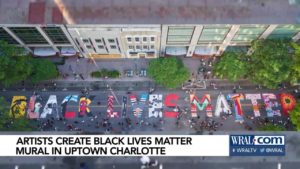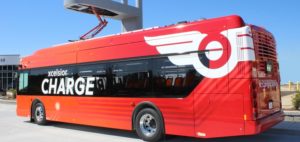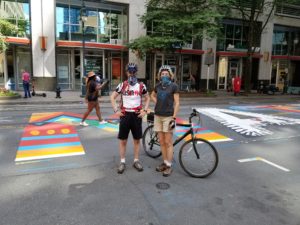The Fierce Optimism of Now
The past months of crisis have brought forward many wrenching, heartbreaking stories about the challenges that people of color in the United States face every day. The need for structural reforms in our systems, from criminal justice to housing to healthcare, has become glaringly clear. But through these stories I have also noticed the resilience of people in the face of adversity, a resilience that gives us hope for real transformation.

The racial injustice that has been exposed is a crisis underlying and intertwined with the concurrent crises of a pandemic, economic downturn, climate change, and challenges to our democracy and election security. There are so many crises to solve, it feels like the Earth is moving under our feet – and indeed this cultural shift has loosened the soil of inertia, apathy and privilege — allowing new ideas and opportunities to grow. Some voice concern that the atmosphere of change will blow over, and that the task forces being formed to examine everything from housing policy to criminal justice reform will end in reports that get put on a shelf. But many others feel that the cultural shift that is happening is permanent. And as I hear the stories of survival and perseverance, of those who have been working on justice and sustainability and healthcare reform for literally decades, and who continue to chip away, I think of that word: resilience.
An online definition of climate resilience states it as a system that can “absorb… external stresses imposed upon it by climate change and adapt, reorganize, and evolve into more desirable configurations that improve the sustainability of the system…” And indeed, despite the multiple crises and drains on city budgets, local communities – beyond all expectation — continue their climate work.

Ann Arbor continues to move forward on its 2030 Carbon Neutral Plan. Three US cities are finalists in the WWF’s One Planet City Challenge to lower GHG emissions. St. Louis passed the first building performance standard in the MidWest. The Climate Resilience programs director for USDN suggested cities convert their Resilience Hubs for their COVID response. Atlanta has temporarily turned a golf course into a public park where residents can enjoy green space and do social distance. Connecticut just launched the first automated – and fully electric – transit bus service in the US. The UN has just announced that de-carbonization is the way for economic recovery after COVID. And in several US cities, murals spelling out Black Lives Matter not only supported local artists and racial justice, they also led to the closure of streets in support of walking and biking. And all of this is recent, happening during the COVID pandemic, racial protests, and economic downturn.

Our California partners at the Local Government Commission frame this opportunity well on their website, in an ambitious, lengthy list: “Now is the time to invest stimulus dollars into projects that address public health, climate and social-equity needs, including infill affordable housing, critical transit projects, bicycle and pedestrian infrastructure, broadband deployment and sustained teleworking and tele-health programs, zero-emission vehicle fleet conversion and infrastructure deployment, green workforce training and job opportunities, urban greening (especially in marginalized communities) and better access to healthy, local food. Whew! And we list all of these options in our Moving Forward Toolkit, which has resources for actions you can take now.
ecoAmerica’s next Let’s Talk Climate, on July 16, will feature two city leaders with national reach — Mayor Kevin Burns and Councilwoman Hattie Portis-Jones — who will provide more optimism in what they see happening in cities right now, despite multiple challenges. You can register here to listen.
We are more resilient and powerful than we realize. Time to build on the Fierce Optimism of Now.
